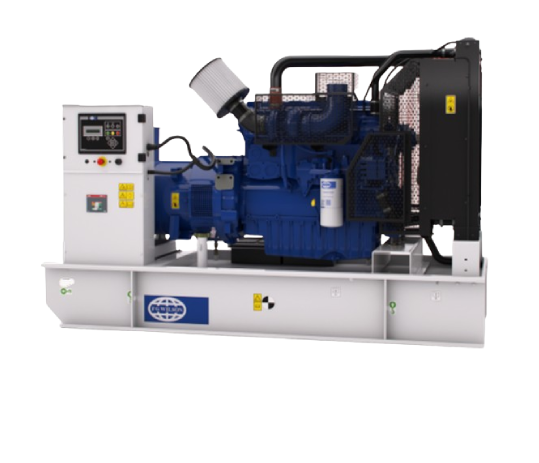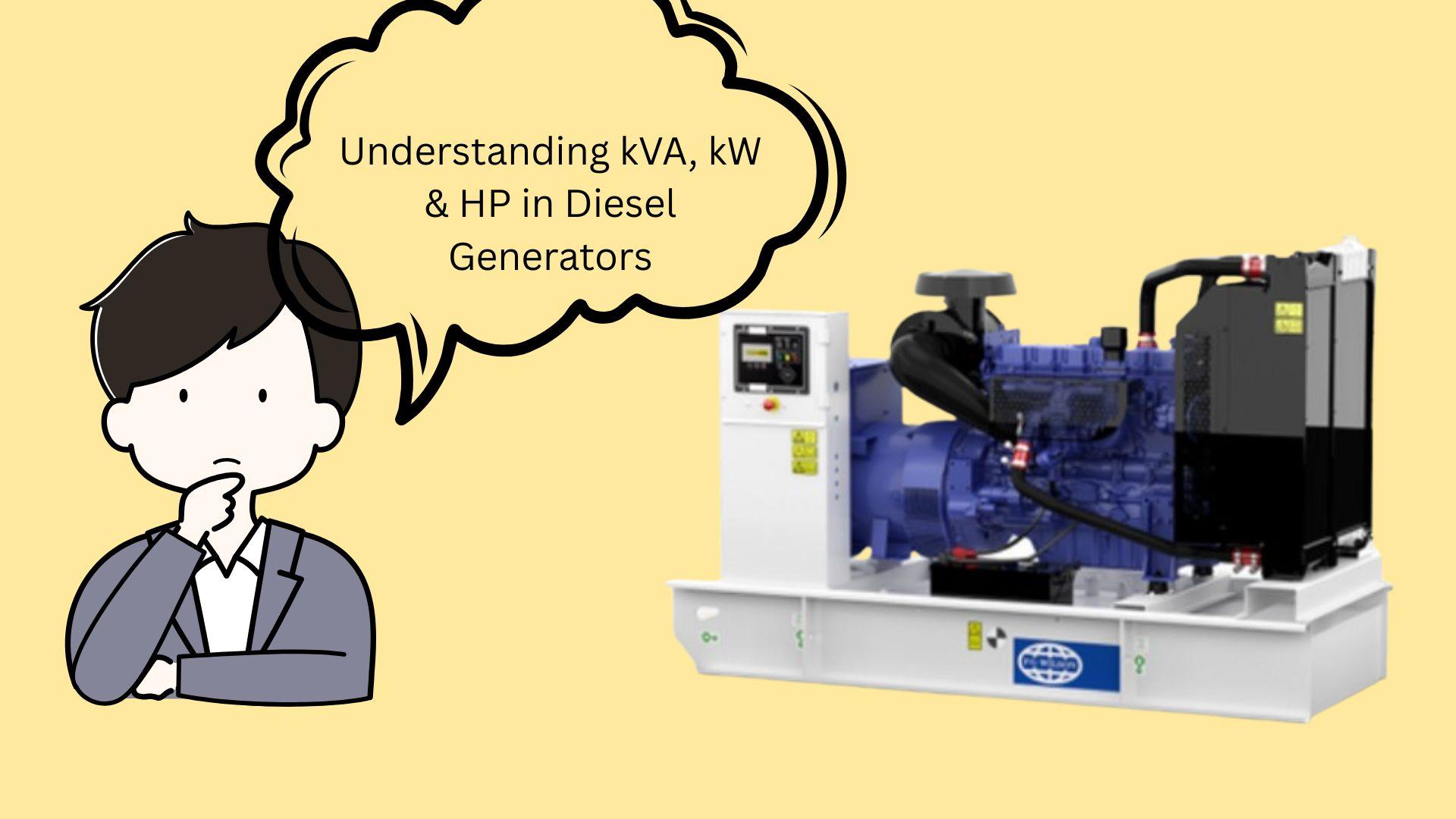Diesel generators play a critical role in powering businesses, institutions, and homes during grid outages or in areas with limited electricity access. Especially in regions like Kenya, where reliability of power is essential, diesel generators in Kenya are a common and effective solution. However, when looking to purchase or rent a diesel generator, many people get confused by the different units used to measure power — namely kVA, kW, and HP.
To make an informed decision and ensure your generator meets your specific energy requirements, it's essential to understand these units and how they relate to each other. This guide simplifies the differences between kVA, kW, and HP, and explains their relevance in the world of diesel generators.

What is kVA (Kilovolt-Amperes)?
kVA, or kilovolt-amperes, is a measure of apparent power. In simple terms, it represents the total amount of power used by both the equipment and the generator system — including power that performs useful work (real power) and power lost in the system due to inefficiencies (reactive power).
The formula for apparent power is:
kVA = Volts × Amps / 1,000
In generator specifications, kVA indicates the overall power capacity of the generator, regardless of how much of that power can actually be used. For most practical purposes, kVA gives an idea of how large the generator is and the kind of load it can handle.
What is kW (Kilowatts)?
kW, or kilowatts, is the measure of real power — the actual power that does the work, such as lighting, running machinery, or powering appliances. It is the most accurate measure of the functional output of a generator.
To convert kVA to kW, the following formula is used:
kW = kVA × Power Factor
In most diesel generators, the power factor is typically 0.8 (or 80%). So, a 100 kVA generator usually delivers about 80 kW of usable power. This is crucial when determining if a generator can support your electrical load efficiently.
What is HP (Horsepower)?
Horsepower (HP) is a measure of mechanical power — the amount of power the diesel engine inside the generator is capable of producing. HP is used to describe the generator's engine output before it gets converted to electrical energy.
The relationship between kW and HP is:
1 kW ≈ 1.34 HP
So, if a generator delivers 80 kW, the engine producing that power would be generating approximately 107 HP. This is especially important when discussing engine performance, fuel efficiency, and servicing requirements.
Why Understanding These Units Matters
When choosing diesel generators in Kenya, understanding the distinction between kVA, kW, and HP can help you:
1. Size the Generator Correctly
Overestimating or underestimating your power needs can result in either a costly purchase or an underperforming generator. Understanding kW and kVA ensures the generator matches your equipment's power demands.
2. Improve Efficiency
Knowing how real power (kW) relates to apparent power (kVA) through the power factor helps optimize your generator usage, leading to improved efficiency and reduced fuel consumption.
3. Compare Generator Models Effectively
Two generators may both be rated at 100 kVA, but if one has a higher power factor or better engine output (HP), it could perform better under certain loads. Understanding these numbers helps you make smarter comparisons.
4. Plan for Expansion
Understanding kVA and kW helps plan for future equipment expansion. If your business plans to grow, you can choose a generator with enough headroom to handle future loads.
Real-World Example
Let’s say your business consumes 60 kW during peak operation. To select the right generator:
● You calculate required kVA:
60 kW ÷ 0.8 (power factor) = 75 kVA
● You then need a generator of at least 75 kVA to ensure safe and efficient operation.
You also want to consider the HP of the engine, especially if you’re running the generator continuously or in demanding conditions. A generator with a stronger engine will likely perform better under strain and offer a longer lifespan.
Also check my latest post- Key Applications and Advantages of Dewatering Pumps in Uganda for Construction Projects
Tips for Choosing Diesel Generators in Kenya
● Conduct a Load Assessment: List all devices and machines that will be powered and their wattage ratings.
● Factor in Startup Loads: Some equipment, like compressors or motors, require more power to start than to run.
● Account for Power Surges: Choose a generator that can handle occasional power spikes without overloading.
● Check the Power Factor: Especially if your operations involve inductive loads like motors or pumps.
● Partner with Trusted Experts: Work with suppliers who can provide consultation, installation, and after-sales service.
Conclusion: Trust the Experts for Reliable Power Solutions
Whether you're powering a construction site, a manufacturing plant, a school, or even a rural hospital, selecting the right generator is crucial. Understanding the relationship between kVA, kW, and HP gives you the clarity needed to choose a machine that’s both reliable and cost-effective.
When it comes to sourcing high-performance diesel generators in Kenya, Blackwood Hodge Ltd stands out as a trusted industry leader. With decades of experience, expert consultation, and a wide range of generator options tailored to local needs, Blackwood Hodge Ltd delivers more than just equipment — they deliver confidence. For a partner who understands power inside and out, Blackwood Hodge Ltd is the name to rely on.



